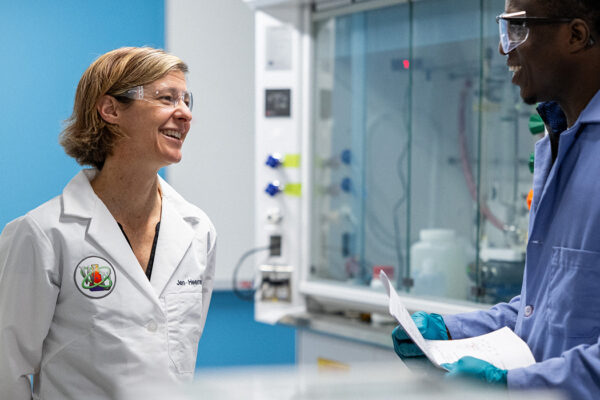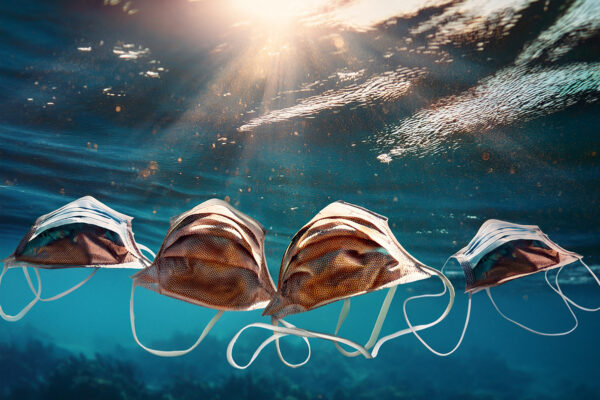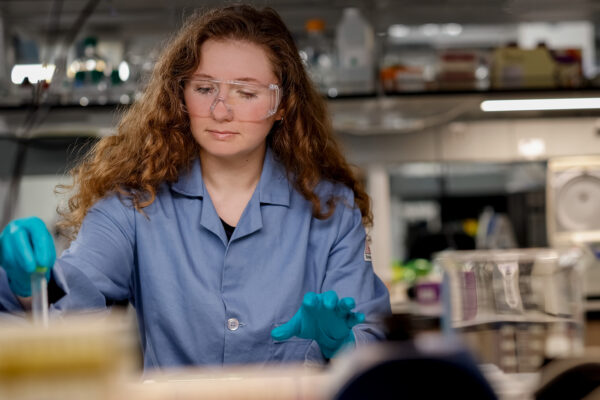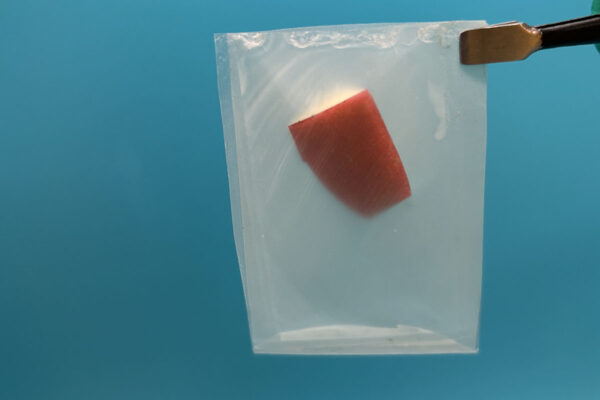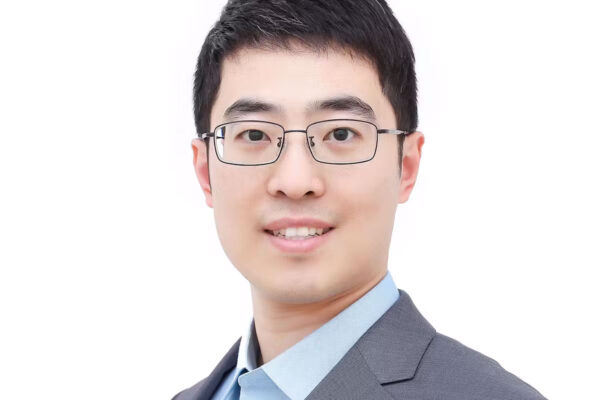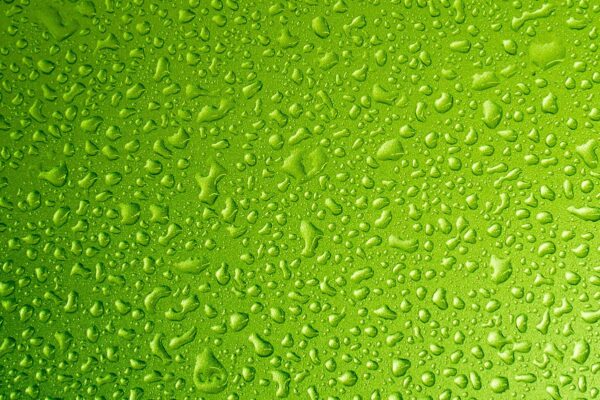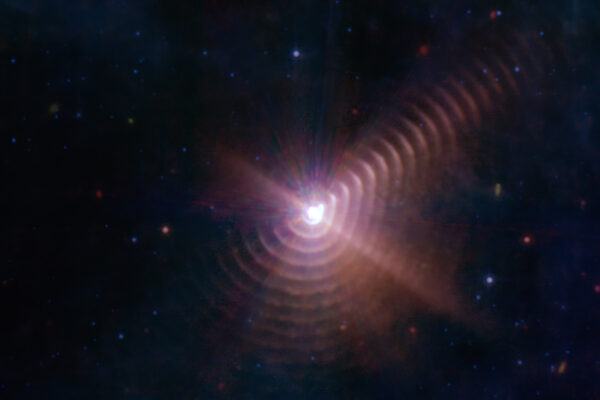A resource for ‘accidental leaders’
With her new book, “Labwork to Leadership,” Jen Heemstra in Arts & Sciences aims to help create a healthier academic culture and support the next generation of leaders.
Sun exposure changes chemical fate of littered face masks
Researchers at Washington University in St. Louis reveal that discarded face masks undergo photochemical changes, influencing their surrounding environment.
WashU, MilliporeSigma sign collaboration agreement
A project that could help scientists identify novel ways to fight disease is one of the research efforts that will get a significant boost under a new collaboration agreement that Washington University in St. Louis has signed with science and technology company MilliporeSigma.
Leaf-inspired design brings bioplastics to the big leagues
Using inspiration from the leaf, engineering researchers at Washington University in St. Louis have optimized bioplastics to be stronger and more biodegradable.
Xu receives engineering early career award
Lu Xu, an engineer at Washington University in St. Louis, has won the 2025 American Institute of Chemical Engineers Environmental Division Early Career Award.
New hydrogel treatments turn water waste into fertilizer
Environmental engineers at WashU have developed hydrogels to transform wastewater nutrients into useful feedstocks and fertilizers.
Research untangles role of stress granules in neurodegenerative disease
Researchers at WashU and St. Jude Children’s Research Hospital have found that biomolecular condensates play a role in suppressing the effects of ALS-causing mutations.
Removing selenium from water takes iron strength
Environmental engineers at WashU have developed critical methods to remove toxic selenium from water.
The mysterious chemical world inside nanopores
Material scientists at Washington University have found ways to control contaminants in nanoporous materials used in water treatment and other manufacturing processes.
In molecular imaging, details matter
Microscopy researchers at Washington University developed a new method to improve precision in molecular imaging.
Older Stories
